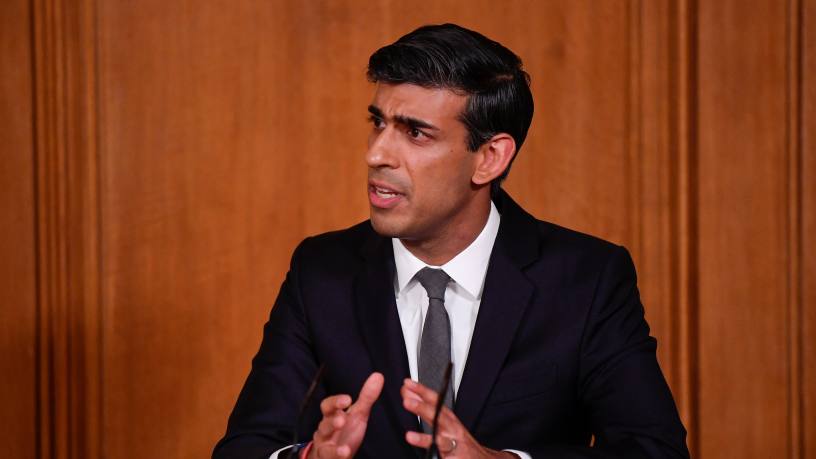The UK finance bill released on October 21 was uncontroversial and pragmatic, compared with the ambitions for the finance sector set out by finance minister Rishi Sunak on November 9.
The announcement was peppered with comments about sovereign green bonds, mandated climate change reporting, improving the listing regime, exploring digital currencies and an infrastructure fund to mobilise pension money – all helping to sustain the City of London’s position as a leading global financial centre. There were also some practical considerations around transparency, equivalence measures and the UK overseas regime.
“We are starting a new chapter in the history of financial services and renewing the UK’s position as the world’s pre-eminent financial centre,” declared Mr Sunak. “Our plans will ensure the UK moves forward as an open, attractive and well-regulated market, and continues to lead the world in pioneering new technologies and shifting finance towards a net-zero future.”
Mr Sunak’s message was welcomed by banks. “Making our financial system the safest and most transparent place in the world to conduct business is vital for the UK’s future global success,” said the bank lobby group, UK Finance. “The creation of a strong but proportionate regulatory framework would enhance the banking and finance sector’s competitiveness, and make the UK attractive for international investment while maintaining robust levels of customer protection.”
Green finance boost
Much of the statement focused on green finance. The government is to launch its first ever green sovereign bond next year to reinforce the UK’s green finance sector.
According to Andreas Billmeier, sovereign research analyst at Western Asset Management, it is a case of the UK quickly catching up with other countries which have already launched such bonds. He added that these bonds are likely to enjoy strong demand.
The UK will make the recommendations on reporting set out by The Financial Stability Board’s task force on climate-related financial disclosures mandatory by 2025, making it one of the first countries to do so. The joint government regulator TCFD taskforce has published a roadmap for implementing the disclosures, some of which will come into force by 2023. These will apply to all large UK companies, financial firms and regulated pension schemes with more than £1bn in assets.
“Requiring TCFD-aligned mandatory disclosure by 2025 will galvanise action and focus on the real issues around climate change which need to start being addressed now, and not decades from now,” says Anna-Marie Slot, a partner at law firm Ashurst.
The devil remains in the details as the UK technical advisory group works on its taxonomy
The UK will also implement a green taxonomy, which defines environmentally sustainable activities, based on the EU taxonomy’s scientific metrics.
"It implies a lot of consistency, which can only be a good thing," says Tim Dolan, a partner at law firm Reed Smith. A UK green technical advisory group will be established to review these metrics to ensure they suit the UK. Given the UK and EU are at similar levels of economic development, Mr Dolan does not expect the advisory group to diverge much from the block’s standards.
“The devil remains in the details as the UK technical advisory group works on its taxonomy, but the sooner the better,” says Ms Slot. “A taxonomy closely aligned with the EU taxonomy will ease the regulatory burden on companies and financial institutions already dealing with Brexit, the [Sustainable Finance Disclosure Regulation] March 2021 deadline and Covid-19."
Mr Sunak announced that the UK aims to join the International Platform on Sustainable Finance, a multilateral forum for policymakers.
The finance minister also expressed a desire to keep the UK at the forefront of fintech innovation. The government wants to harness the potential of developments such as stablecoins and private asset-backed digital currencies, and will propose a regulatory approach that balances financial stability considerations against beneficial innovation. Stablecoins could speed up payment services and make them cheaper, bringing considerable benefits to capital markets.
Practical considerations
The UK will review the existing regulatory regimes to ensure they enhance the attractiveness of the UK’s financial services. The government is to consult on the overseas regime – key rules allowing third-country persons to do financial business in the UK – to ensure it is still fit for purpose.
Another key plank to UK cross border financial services is over the equivalence regime that will be adopted when the country leaves the transition period after December 31. Banks were comforted by talk of using an outcomes-based approach prioritising stability, openness and transparency — even in the absence of a reciprocal move from the EU. “By taking as many equivalence decisions as we can in the absence of clarity from the EU, we’re doing what’s right for the UK and providing firms with certainty and stability,” said Mr Sunak
The government also published a guidance document on equivalence.
“The clarity on the UK’s approach to the equivalence of the EU in a wide number of areas will provide welcome certainty to firms as they prepare for the end of the transition period,” says Peter Bevan, global head at Linklaters’ financial regulation group. He noted that the markets in financial instruments directive (MiFID) II was not covered in the announcement, but pointed out that firms providing services into the UK already have the Temporary Permissions Regime (TPR).
Mr Dolan says the UK’s approach is to grant equivalence to third countries when it is in the UK’s interests. He adds that this approach is, to an extent, already manifested by the TPR.
"Make no mistake – [Mr Sunak] is being pretty direct with the EU on financial services. The UK wants what is best for the sector as a whole, the EU wants to play politics. We are doing all we can to show that in this area we want to be open and transparent,” says Jake Green, global co-head of financial regulation at law firm Ashurst.
There is also to be a review and consultation on the UK’s fund management sector.
This article first appeared in The Banker's sister publication Global Risk Regulator.












